Introduction
On Thursday, January 4, 2007, Keith Ellison from the 5th Congressional District of Minnesota was sworn in as a Democrat Member of the 110th Congress amid the media fanfare of being the first Muslim elected to Congress. The following day, in a swirl of national controversy, Ellison had the usual private swearing-in ceremony, but this time on a 1764 Koran owned by Founding Father Thomas Jefferson
(Prior to his election to Congress, Ellison had been a Democrat state legislator in Minnesota, where he established a liberal voting record. Of his Muslim faith, Ellison explains: “I was raised Catholic and later became a Muslim while attending Wayne State University. I am inspired by the Quran’s message of an encompassing divine love, and a deep faith guides my life every day.” [1])
Muslims saw Ellison’s election and swearing-in as a great victory. For example, he recently spoke to a cheering crowd of 3,000 at a national convention of the Muslim American Society and the Islamic Circle of North America. At that event (described as being aimed “at revival and reform”), Ellison admonished his fellow Muslims: “You can’t back down. You can’t chicken out. You can’t be afraid. You got to have faith in Allah, and you’ve got to stand up and be a real Muslim! . . . On January 4, I will go swear an oath to uphold the Constitution of the United States. I’ll place my hand on the Quran!” The crowd responded with enthusiastic applause, cheering “Allahu akbar!” (Allah is great!). [2]
While Muslims at home and abroad were elated at Ellison’s victory, others had quite different reactions. In fact, two prominent critics, representing the feelings of many Americans, became the focus of national news stories following their outspoken denunciation of Ellison’s plans to use the Koran. One of those individuals was Jewish syndicated radio host and columnist Dennis Prager. Writing of Ellison’s intent to be sworn in on the Koran, Prager declared:
He should not be allowed to do so – not because of any American hostility to the Koran, but because the act undermines American civilization. . . . [I]t is an act of hubris that perfectly exemplifies multiculturalist activism – my culture trumps America’s culture. . . . Insofar as a member of Congress taking an oath to serve America and uphold its values is concerned, America is interested in only one book: the Bible. If you are incapable of taking an oath on that book, don’t serve in Congress. In your personal life, we will fight for your right to prefer any other book. We will even fight for your right to publish cartoons mocking our Bible. But, Mr. Ellison, America, not you, decides on what book its public servants take their oath. . . . Ellison’s [swearing on the Koran] will embolden Islamic extremists and make new ones, as Islamists, rightly or wrongly, see the first sign of the realization of their greatest goal – the Islamicization of America. When all elected officials take their oaths of office with their hands on the very same book, they all affirm that some unifying value system underlies American civilization. If Keith Ellison is allowed to change that, he will be doing more damage to the unity of America and to the value system that has formed this country than the terrorists of 9-11. [3]
A second individual who became a national news story was Congressman Virgil Goode of Virginia. Like most other Members of Congress, numerous constituents contacted him, expressing their opposition to Ellison’s plan to be sworn in on the Koran. Goode’s blunt candidness about the issue became the object of national news coverage. He told constituents:
Thank you for your recent communication. When I raise my hand to take the oath on Swearing-In Day, I will have the Bible in my other hand. I do not subscribe to using the Koran in any way. The Muslim Representative from Minnesota was elected by the voters of that district and if American citizens don’t wake up and adopt the Virgil Goode position on immigration there will likely be many more Muslims elected to office and demanding the use of the Koran. We need to stop illegal immigration totally and reduce legal immigration and end the diversity visas policy pushed hard by President Clinton and allowing many persons from the Middle East to come to this country.
I fear that in the next century we will have many more Muslims in the United States if we do not adopt the strict immigration policies that I believe are necessary to preserve the values and beliefs traditional to the United States of America and to prevent our resources from being swamped. The Ten Commandments and “In God We Trust” are on the wall in my office. A Muslim student came by the office and asked why I did not have anything on my wall about the Koran.
My response was clear, “As long as I have the honor of representing the citizens of the 5th District of Virginia in the United States House of Representatives, The Koran is not going to be on the wall of my office.” Thank you again for your email and thoughts.
Sincerely yours,
Virgil H. Goode, Jr.
The media reaction to these two leaders and their outspoken criticism of Ellison’s plan included epithets such as “racist,” “bigoted,” “homophobic,” “Islamophobic,” “sexist,” “xenophobic,” “fascist,” etc. [4]
There clearly has been no lack of emotive language surrounding the swearing in of Rep. Keith Ellison. Significantly, however, there is an historical backdrop to this controversy, with many salient elements in American history that are largely unknown today. This piece will present some of the forgotten history surrounding a Muslim serving in Congress.
Analysis
Is Keith Ellison actually the first Muslim to serve in the U. S. Congress? According to the national media, the answer is a resounding “Yes!” [5] That may well be true; however, John Randolph of Virginia, who served in Congress from 1799-1834, expressed that in his early years, he held a position “in favor of Mahomedanism” [6] and “rejoiced in all its triumphs over the cross [Christianity].” [7] Randolph was not a Muslim in the same sense as Ellison, but he certainly cultivated what he described as a position of “natural repugnance to Christianity.” [8] Francis Scott Key, author of the “Star Spangled Banner,” [9] befriended Randolph and faithfully shared Christ with him. Randolph eventually converted to Christianity [10] and became a strong personal advocate for his newfound faith. [11] (Interestingly, Key reached out to Muslims, sharing Christianity with them and even purchasing for them copies of the Christian Bible printed in Arabic. [12]
There were numerous Muslims living in America at the time of the American Founding. Islam had been introduced into America during the early 1600s with the entrance of slavery. It is estimated that ten percent of slaves were Muslim, [13] many of whom became free and lived in America but retained their Islamic faith. There were therefore early Muslim communities in South Carolina and Florida; [14] and there were enough Muslims that by 1806 the first Koran was published and sold in America. [15]
Significantly, during the Founding Era, like today, there was great concern over the possibility of a Muslim being elected to Congress. That concern was heightened by the fact that at that time, like now, America was involved in a war on terror against Islamic terrorists. That war, called the Barbary Powers War, lasted thirty-two years, involved six years of active overseas warfare against Muslim terrorists, and spanned four U. S. presidencies: those of George Washington, John Adams, Thomas Jefferson, and James Madison. [16]
Since few today have ever heard of that war, a brief review will provide useful background in addressing the issue of a Muslim being sworn into Congress.
Barbary Powers & Early America
The Barbary Powers conflict began during the American Revolution when Muslim terrorists from four different Islamic nations (Tunis, Morocco, Algiers, and Tripoli) began making indiscriminate attacks against the property and interests of what they claimed to be “Christian” nations (America, England, France, Spain, Portugal, Denmark, Sweden, etc.).
The Barbary Powers (called Barbary “pirates” by most Americans) attacked American civilian and commercial merchant ships (but not military ships) wherever they found them. Prior to the
Revolution, American shipping had been protected by the British navy, and during the Revolution by the French navy. After the Revolution, however, America lacked a navy of her own and was therefore left without protection for her shipping. The vulnerable American merchant ships, built for carrying cargoes rather than fighting, were therefore easy prey for the warships of the Barbary Powers, which seized the cargo of the ships as loot and took their seamen (of whom all were considered Christians by the attacking Muslims) and enslaved them. [17]
In 1784, Congress authorized American diplomats John Adams, Benjamin Franklin, and Thomas Jefferson to negotiate with the Muslim terrorists. [18] Negotiations proceeded, and in 1786, John Adams and Thomas Jefferson candidly asked the Ambassador from Tripoli the motivation behind their unprovoked attacks against Americans. What was the response?
The Ambassador answered us that it was founded on the laws of their Prophet [Mohammed] – that it was written in their Koran that all nations who should not have acknowledged their authority were sinners; that is was their right and duty to make war upon them wherever they could be found and to make slaves of all they could take as prisoners; and that every Musselman [Muslim] who should be slain in battle was sure to go to Paradise. [19]
Barbary Powers: America Under the Constitution
Given this “spiritual” incentive to enslave and make war, the Muslim attacks against American ships and seamen were frequent. In fact, in the span of just one month in 1793, Algiers alone seized ten American ships and enslaved more then one hundred sailors, holding them for sale or ransom.[20] Significantly, when Adams and Jefferson queried the Tripolian Ambassador about the seizure of sailors, he explained:
It was a law that the first who boarded an enemy’s vessel should have one slave more than his share with the rest, which operated as an incentive to the most desperate valor and enterprise – that it was the practice of their corsairs [fast ships] to bear down upon a ship, for each sailor to take a dagger in each hand and another in his mouth and leap on board, which so terrified their enemies that very few ever stood against them. [21]
The enslaving of Christians by Muslims was such a widespread problem that for centuries, French Catholics operated a ministry that raised funding to ransom enslaved seamen. As Jefferson explained:
There is here an order of priests called the Mathurins, the object of whose institutions is the begging of alms for the redemption of captives. About eighteen months ago, they redeemed three hundred, which cost them about fifteen hundred livres [$1,500] apiece. They have agents residing in the Barbary States, who are constantly employed in searching and contracting for the captives of their nation, and they redeem at a lower price than any other people can. [22]
Ransoming Americans was no less expensive, and therefore a very profitable trade for the Muslim terrorists. As John Adams explained:
Isaac Stephens at Algiers. . . . says the price is 6,000 for a master [captain], 4,000 for a mate [officer], and 1,500 for each sailor. The Dey [Muslim ruler] will not abate [drop the price] a sixpence, he says, and will not have anything to say about peace with America. He says the people (that is the sailors, I suppose) are carrying rocks and timber on their backs for nine miles out of the country, over sharp rocks and mountains; that he has an iron round his leg, &c. He begs that we would pay the money for their redemption without sending to Congress, but this is impossible. [23]
In an attempt to secure a release of the kidnapped seamen and a guarantee of unmolested shipping in the Mediterranean, President Washington dispatched diplomatic envoys to negotiate terms with the Muslim nations. [24] They secured several treaties of “Peace and Amity” with the Muslim Barbary Powers to ensure “protection” of American commercial ships sailing in the Mediterranean. [25] And because America had no threat of force against the Muslims, she was required to pay hundreds of thousands of dollars (tens of millions in today’s money) of “tribute” (i.e., official extortion) to the Muslim countries to secure the “guarantee” of no attacks. In fact, one Muslim Ambassador told American negotiators that “a perpetual peace could be made” with his nation for the price of 30,000 guineas [$2.3 million today], with an additional 3,000 guineas [$230,000] fee for himself. [26] Having no other recourse, America paid. Sometimes the Muslims even demanded additional “considerations” – such as building and providing a warship as a “gift” to Tripoli, [27] a “gift” frigate to Algiers, [28] paying $525,000 to ransom captured American seamen from Algiers, [29] etc.
These extortion payments became a significant expense for the American government. In fact, in 1795, payments to Algiers alone (including the ransom payment to free 115 American seamen), totaled nearly one million dollars [30] (and Algiers was just one of the four warring Barbary Powers). Significantly,
America had to obtain a loan from Holland to make the payment, [31] and the entire affair displeased Washington, who considered it a “disgrace” to remit funds for that purpose, preferring rather to inflict “chastisement” upon the terrorists. [32] Nevertheless, the best solution at that time was to continue paying the protection money, for America lacked a military, having neither navy nor army (the army was available only on an as-needed basis to be called up from among the people in case they needed to defend themselves; America had no standing army). Disgusted with the payments, Washington lamented:
Would to Heaven we had a navy able to reform those enemies to mankind – or crush them into non-existence. [33]
By the last year of Washington’s presidency, a full sixteen percent of the federal budget was spent on extortion payments. [34] Thomas Jefferson, who served as Secretary of State under President Washington, believed that a time would come when not only the economic effects of the extortion payments to the Muslim terrorists would be felt by every American but also that using force would be the only practicable way to end the terrorist attacks. He predicted:
You will probably find the tribute to all these powers make such a proportion of the federal taxes as that every man will feel them sensibly when he pays these taxes. The question is whether their peace or war will be cheapest? . . . If we wish our commerce to be free and uninsulted, we must let these nations see that we have an energy [willingness to use force] which at present they disbelieve. The low opinion they entertain of our powers cannot fail to involve us soon in a naval war. [35]
Eventually, Americans reached the point Jefferson had predicted: not only did they feel the economic effects but they also resented the unprovoked attacks and paying for rights already guaranteed by international law. Therefore, tiring of the largely unsuccessful diplomatic approach, military preparations were urged, thus embracing President George Washington’s wise axiom that:
To be prepared for war is one of the most effectual means of preserving peace. [36]
In the last year of Washington’s presidency, he urged Congress to find the revenues to undertake the construction of a U. S. Navy to defend American interests on the high seas. [37] When John Adams became President, he vigorously pursued those plans, earning the title “Father of the Navy.” [38] Yet Adams was reticent to resort to a military solution – not because he opposed the use of force but rather because he didn’t think the people would fully support that option. [39] Furthermore, he believed that even though the extortion payments were high, the increased revenue produced by American commerce in that region would more than cover the costs. [40] Nevertheless, he longed for the change in international attitude that would result if America used military forces to defend our citizens and our rights.
Because America had adopted a policy of appeasement in response to the terrorist depredations, the Barbary Powers viewed America as weak. In fact, William Eaton, whom Adams had dispatched as American diplomat to Tunis (one of the four terrorist powers), reported to Secretary of State Timothy Pickering that “an opinion long since conceived and never fairly controverted among the Tunisians [is] that the Americans are a feeble sect of Christians.” [41] Truly, with no fear of consequence, Muslims found American targets especially inviting, fueling even further attacks.
Adams truly understood the difference that a naval force would make, explaining:
It would be a good occasion to begin a navy. . . . The policy of Christendom [i.e., of the Christian nations not fighting back for their rights] has made cowards of all their [the Christian nations’] sailors before the standard of Mahomet. It would be heroical and glorious in us to restore courage to ours. I doubt not we could accomplish it if we should set about it in earnest. [42]
By the end of Adams’ administration, extortion payments to the Muslim terrorists accounted for twenty percent of the federal budget. [43]
When Thomas Jefferson became President in 1801, having personally dealt with the Muslim Barbary Powers for almost two decades, he had already concluded that there were only three solutions to the terrorist problem: (1) pay the extortion money, (2) keep all American ships out of international waters (which would destroy American commerce), or (3) use military force to put an end to the attacks. [44] Jefferson discarded the first two options, rejecting the second as a matter of bad policy, and the first because:
I was very unwilling that we should acquiesce in the . . . humiliation of paying a tribute to those lawless pirates. [45]
He supported the third option, acknowledging:
I very early thought it would be best to effect a peace through the medium of war. [46]
Jefferson offered several reasons he believed this would be the best policy, including:
Justice is in favor of this opinion; honor favors it; it will procure us respect in Europe, and respect is a safeguard to interest; . . . [and] I think it least expensive and equally effectual. [47]
Jefferson formed this position long before his presidency; so once inaugurated, he began refusing payments to the offending nations. In response, Tripoli declared war against the United States (and Algiers threatened to do so), [48] thus constituting America’s first official war as an established independent nation. Jefferson, determined to end the two-decades-old terrorist attacks, selected General William Eaton (Adams’ Consul to Tunis) and elevated him to the post of “U. S. Naval Agent to the Barbary States,” with the assignment to lead an American military expedition against the four terrorist nations. Using the new American Navy built under Adams, Eaton transported the U. S. Marines overseas; and when the offending nations found themselves confronted by imminent American military action, all but Tripoli backed down.[49]
General Eaton therefore led a successful military campaign against Tripoli that freed captured seaman and crushed the terrorist forces. After four years of fighting, in 1805 Tripoli signed a treaty on America’s terms, thus ending their terrorist aggressions. (It is from the Marine Corps’ role in that first conflict with Muslim terrorists from 1801-1805 that the opening line of the Marine Hymn is derived: “From the halls of Montezuma to the shores of Tripoli . . .”)
American troops returned home, and the region briefly remained quiet, but by 1807, Muslim Algiers had resumed attacks against American ships and sailors. [50] Jefferson, preoccupied with efforts to avoid war with both Great Britain and France, did not return military forces to the region.
Nevertheless, his actions had brought America its first respite to the decades old attacks; so when he left office, Congress congratulated him, noting:
These are points in your administration which the historian will . . . teach posterity to dwell upon with delight. Nor will he forget . . . the lesson taught the inhabitants of the coast of Barbary – that we have the means of chastising their piratical encroachments and awing them into justice. [51]
(Interestingly, Congressman Ellison took his ceremonial oath of office on the Koran owned by Thomas Jefferson. A pertinent question might be: Why did Jefferson own a Koran? A simple answer is: To learn the beliefs of the enemies he was fighting. Recall that Jefferson had been personally exposed to Islamic beliefs when attempting to secure peace between America and Muslim terrorists. Having been told by the Muslim Ambassador that the Koran promised Paradise as a reward for enslaving, killing, and war, Jefferson inquired into the irrational beliefs that motivated the Muslim groups and individuals warring against America. Therefore, using Jefferson’s Koran was perhaps not as noble an image as Ellison tried to portray, despite his unfounded claim that the Koran is “definitely an important historical document in our national history and demonstrates that Jefferson was a broad visionary thinker. . . . It [the Koran] would have been something that contributed to his own thinking.” [52] The Koran did contribute to Jefferson’s thinking, but certainly not in the sense Ellison meant.)
Barbary Powers During the War of 1812
When President Madison took office, he was immediately engulfed with the issues that led to the War of 1812, and was unable to respond with military force against the renewed terrorist attacks. (Significantly, during that time, American Jewish Diplomat Mordecai Noah negotiated with the Muslims in an attempt to secure the release of captured American Christians. [53])
When the war with the British ended in 1815, Madison dispatched warships and the military against Algiers, Tunis, and Tripoli, placing the American forces under the command of Stephen
Decatur and William Bainbridge (two veteran military heroes of the war on terror under Jefferson). America quickly subdued Algiers and brought her to the peace table where in July 1815, Algiers ratified a treaty freeing all Christians and ending future slavery of Christians. [54] The American fleet then sailed for Tunis, but immediately after their departure, Algiers renounced the treaty. However, two of the other nations being harassed by Muslim terrorists (Great Britain and the Netherlands) brought their fleets against Algiers and promptly defeated her, convincing Algiers to sign a new peace treaty. [55]
Meanwhile, the American forces confronted Tunis, and later returned to Algiers, where in December 1816, another treaty was signed to replace the one Algiers had renounced. [56] Thus America’s first War on Terror against Muslim terrorists was finally ended. After thirty-two years of conflict and six years of armed warfare, the terrorist attacks against Americans finally subsided.
During that extended conflict, the American public learned much about the character of the Muslim terrorists through the official correspondence between the State Department and its diplomats. For example, in addition to the insights gained from diplomats such as Adams and Jefferson, General William Eaton informed the Secretary of State why the Muslims were such dedicated foes:
Taught by revelation that war with the Christians [i.e., America] will guarantee the salvation of their souls, . . . their [the Muslims’] inducements to desperate fighting are very powerful. [57]
Even further insight came from General Eaton’s writings after he commenced military action against Tripoli:
April 8th. We find it almost impossible to inspire these wild bigots with confidence in us or to persuade them that, being Christians, we can be otherwise than enemies to Musselmen [Muslims]. We have a difficult undertaking! [58]
May 23rd. Hassien Bey, the commander in chief of the enemy’s forces, has offered by private insinuation for my head six thousand dollars and double the sum for me a prisoner; and $30 per head for Christians. Why don’t he come and take it? [59]
Throughout the extended conflict, Muslims viewed their actions in terms of a holy war against Christians; America, however, engaged in no religious war. Therefore, in the numerous treaties with the Barbary Powers, America sought to convince the Muslims there was no holy war – that as Christians, America had no hatred of Muslims per se. (Language typical in the treaties was that America had no “enmity against the laws, religion, or tranquility” of the Muslims, and that our substantial differences of “religious opinions shall [n]ever produce an interruption of the harmony between the two nations.” [60]) America did not retaliate against Muslims because of their faith but rather to end their terrorism against Americans.
Faith in the Constitution
At the time the Constitution was written in 1787, and ratified from 1787-1790, Muslim attacks against Americas had been occurring for years. It therefore became an understandable concern of citizens as to whether a Muslim might ever be elected to federal office under the new Constitution. The question was raised because of Article VI in the Constitution, which declared:
The Senators and Representatives . . . shall be bound by oath or affirmation to support this Constitution; but no religious test shall ever be required as a qualification to any office or public trust under the United States.
Citizens wanted to know if the clause prohibiting a religious test (i.e., prohibiting the federal government from examining the religious beliefs of any candidate) meant that Muslims – then warring against America – might be elected to federal office. Not only was that question specifically raised but it was also succinctly answered in the process of debating and ratifying the U. S. Constitution. For example, in the North Carolina ratifying convention, Governor Samuel Johnston explained:
It is apprehended that Jews, Mahometans, Pagans, &c., may be elected to high offices under the government of the United States. Those who are Mahometans (or any others who are not professors of the Christian religion) can never be elected to the office of President or other high office but in one of two cases. First, if the people of America lay aside the Christian religion altogether, it may happen. Should this unfortunately take place, the people will choose such men as think as they do themselves. Another case is if any persons of such descriptions should, notwithstanding their religion, acquire the confidence and esteem of the people of America by their good conduct and practice of virtue, they may be chosen. [61]
Signer of the Constitution Richard Dobbs Spaight similarly explained:
As to the subject of religion. . . . [n]o power is given to the general [federal] government to interfere with it at all. . . . No sect is preferred to another. Every man has a right to worship the Supreme Being in the manner he thinks proper. No test is required. All men of equal capacity and integrity are equally eligible to offices. . . . I do not suppose an infidel, or any such person, will ever be chosen to any office unless the people themselves be of the same opinion. [62]
Supreme Court Justice James Iredell (nominated to the Court by President Washington) agreed:
But it is objected that the people of America may perhaps choose representatives who have no religion at all, and that pagans and Mahometans may be admitted into offices. . . . But it is never to be supposed that the people of America will trust their dearest rights to persons who have no religion at all, or a religion materially different from their own. [63]
Theophilus Parsons (Chief Justice of the Supreme Court of Massachusetts) also affirmed:
No man can wish more ardently than I do that all our public offices may be filled by men who fear God and hate wickedness; but it must remain with the electors to give the government this security. [64]
The scope of Article VI was made clear by the writers and ratifiers of the U. S. Constitution: Muslims could be elected to office – but only if the people of that district desired it. Justice Joseph Story, placed on the Court by James Madison, therefore explained in his famous Commentaries on the Constitution that because of Article VI, on the federal level it was possible that . . .
the Catholic and the Protestant, the Calvinist and the Armenian, the Jew and the Infidel [Muslim], may sit down at the common table of the national councils without any inquisition into their faith or mode of worship. [65]
Through the Constitution, the Framers had constrained the federal government; however, they had left the people completely free – that is, the federal government could not apply any religious test, but the voters could. As a court explained in 1837:
The distinction is a sound one between a religion preferred by law, and a religion preferred by the people without the coercion of law – between a legal establishment which the present constitution expressly forbids . . . and a religious creed freely chosen by the people for themselves. [66]
Keith Ellison
Keith Ellison was selected by the voters of the 5th Congressional District of Minnesota in the process specified by the U. S. Constitution. Perhaps Ellison was chosen because the voters there “laid aside the Christian religion,” or perhaps because Ellison “acquired the confidence and esteem of the people by his good conduct and practice of virtue,” or because “the people themselves are of the same opinion.” The reasons matter not, for Ellison was the legitimate choice of the voters of the 5th District, and neither the federal government nor citizens outside Minnesota’s 5th District may do anything about it. The rest of the nation may be offended by what Ellison did with the Koran, but that is irrelevant to the legitimacy of his office; he was not elected to represent the nation but rather the voters in his district – as the other 434 Members in the U. S. House of Representatives were elected to represent the voters in their respective districts.
Yet, that being said, is there still an understandable element of concern with Ellison’s election? Certainly. After all, America and Americans are currently the target of attacks by members of the same Islamic faith that Ellison professes; and while Ellison may not hold the same specific beliefs as America’s enemies, he nevertheless holds the same religion. That America might be concerned about Ellison because of the behavior of others in his religion may seem unfair, but it is reality. Consider the recent election results as an example.
Exit polls affirm that the top issue for voters in 2006 was “corruption and ethics.” [67] This was logical considering the highly-publicized indictments (and near indictments) of so many Republicans over the previous two years: Rep. Duke Cunningham, Rep. Tom Delay, Rep. Bob Ney, Scooter Libby (Chief of Staff for the Vice-President), Tony Rudy and Michael Scanlon (from the office of the House Majority Leader), Governor Bob Taft, Governor Ernie Fletcher, Karl Rove’s multiple visits to a Grand Jury, the Jack Abramoff scandal, the sex scandal of Rep. Mark Foley, etc. Clearly, Republicans appeared “dirty” (even though Democrat U. S. Rep. William Jefferson was tainted, there were far fewer Democrats in the news for corruption problems); and since “corruption and ethics” was a top issue for voters, Republicans paid the price. Consequently, voters threw several dozen Republicans out of federal office. Yet many Republicans who lost in that political tsunami were completely clean from any charge of corruption (e.g., Rep. Jim Ryun, Rep. John Hostettler, Sen. Jim Talent, etc.); nevertheless, they were the victims of their scandalized associates – that is, the perception accorded the guilty Republicans was projected onto the innocent ones simply by virtue of the fact that they, too, were Republicans. The same is true with Keith Ellison’s Muslim faith.
Ellison may not have the same beliefs as the Muslims who openly decry and even attack America; nevertheless, their behavior reflects on him. It is therefore understandable that citizens outside his district are highly concerned. This concern was heightened by the fact that Ellison himself publicly flaunted his abrogation of American precedent by making his swearing-in on the Koran a national issue. After all, the ceremonial swearing-in is always a private ceremony, and what he did there would not have been an issue; however, he chose to make that private ceremony a public demonstration in the face of all Americans. Did any of the other 434 Members make a national issue of what they would do in their private swearing-in? No, only Ellison; he therefore should not decry the national controversy that he created.
Islam
Furthermore, the religion of Islam, both past and present, has yet to demonstrate that it is friendly to a free government and a free people.
As a modern confirmation of this fact, the U. S. Commission on International Religious Freedom monitors nations for egregious violations of religious liberty, and the current list of the most religiously-intolerant nations in the world is loaded with Islamic nations, including Eritrea, Iran, Pakistan, Saudi Arabia, Sudan, Turkmenistan, and Uzbekistan (secularism and communism join Islam as the other two worst offenders). [68] On the watchlist for serious but slightly less egregious violations are numbers of other Islamic nations, including Bangladesh, Egypt, Indonesia, and Nigeria (secularism and communism again join Islam among the worst violators). [69] Significantly, the Judeo-Christian belief system protects freedom and religious liberty; yet, other belief systems – especially that of Islam – have not exhibited those protections.
That intolerance and tyranny are general traits of Islam was also evident to observers two centuries ago – including political philosopher Charles Montesquieu (a particular favorite of America’s Framers [70]). In what was perhaps his most famous work (Spirit of Laws, 1748), Montesquieu undertook a perusal of a thousand years of world history to assess the impact of both Islam and Christianity upon government. Based on his investigation, Montesquieu concluded:
A moderate [non-violent, non-coercive] government is most agreeable to the Christian religion, and a despotic government to the Mahometan. [71]
He continued:
The Christian religion is a stranger to mere despotic power. . . . [Christian rulers] are more disposed to be directed by laws and more capable of perceiving that they cannot do whatever they please. While the Mahometan princes incessantly give or receive death, the religion of the Christians renders their princes . . . less cruel. [72]
To demonstrate the truth of this fact, Montesquieu noted:
It is the Christian religion that . . . has hindered despotic power from being established in Ethiopia. [73]
Montesquieu’s reference to Ethiopia is instructive. Ethiopia became a Christian nation shortly after the time of Christ. Islam made its first appearance there in 615 AD; and even though Mohammed described Ethiopia as “a land of righteousness where no one was wronged,” [74] Muslims nevertheless began attempting to conquer and subjugate Ethiopia to the Islamic faith.
While Muslims attacked and swept over the rest of Africa exacting forcible conversions to Islam in a jihad (holy war), they were unable to defeat Christian Ethiopia until 1528 AD. In 1535, Ethiopia’s leader appealed to Europe for help, and by 1543, Christians in Ethiopia had regained their nation. Significantly, both before and after that short period of Islamic rule, Ethiopia was characterized by democratic government and non-coercion in religion. Ironically, Muslim jihads have today been renewed against Christians in Ethiopia, [75] despite the fact that Muslims there are still being well treated by Christians.[76]
Montesquieu, having examined the visible influences of both Christianity and Islam upon governments, therefore recommended:
From the characters of the Christian and Mahometan religions, we ought without any further examination to embrace the one and reject the other; for it is much easier to prove that religion ought to humanize the manners of men than that any particular religion is true. It is misfortune to human nature when religion is given by a conqueror. The Mahometan religion, which speaks only by the sword, acts still upon men with that destructive spirit with which it was founded.[77]
Montesquieu was not the only student of history to reach the same conclusion. For example, president, statesman, international diplomat, and legal scholar John Quincy Adams similarly observed:
[The] law of nations as practiced among Christian nations . . . is founded upon the principle that the state of nature between men and between nations is a state of peace. But there was a Mohametan law of nations which considered the state of nature as a state of war. [78]
And in 1898, Charles Galloway, like so many historians before and after him, also noted:
The Koran puts a premium upon war, offering the highest rewards to those who slay the greatest number of infidels. Mohammed’s cardinal principle (that the end justifies the means) consecrated every form of deception and lying and encouraged every sort of persecution and violence. . . . The citizen is the slave of the state; he has no rights to be respected. Mohammedanism is an absolute despotism. [79]
At about the same time, historian John Fiske reported of Muslim leaders:
The things done daily by the [Muslim] sovereigns were such as to make a civilized imagination recoil with horror. One of these cheerful creatures who reigned in the middle of the eighteenth century, called Muley Abdallah, especially prided himself on his peculiar skill in mounting a horse. Resting his left hand upon the horse’s neck, as he sprang into the saddle he simultaneously swung the sharp scimitar [curved broad-blade sword] in his right hand so deftly as to cut off the head of the groom who held the bridle. From his behavior in these sportive moods one may judge what he was capable of on serious occasions. He was a fair sample of the [Muslim] monarchs. [80]
These examples may seem to be extreme – that only the worst possible claims about Islam have been selected, but such is not the case. As affirmed by the current Commission on International Religious Freedom (as well as many other governmental and non-governmental human rights organizations), these characteristics accurately portray the societal outworkings of Islam today. Keith Ellison may be the one to break this pattern and start something new with Islam, but in the meantime, he should not be surprised that there is widespread concern over his decision to publicly flaunt American tradition and values and replace them with Islamic ones.
Historical Lessons
Having addressed the historical perspective of placing a Muslim in Congress, consider now lessons from history pertinent to the issue of Islam in America today. American Christians (and religious Jews) concerned about the presence of Islam in America should: (1) Keep a Statistical Perspective; (2) Practice Free-Market Pluralism; and (3) Remember the Greater Danger.
1. Keep a Statistical Perspective
According to an ABC News’ Muslim affiliate in Great Britain:
Experts agree Islam is one of the fastest growing religions in America. As many as five million Muslims live in the United States and in the last five years, the number of mosques in this country has increased from 843 to about 1,300. Most of the growth has come from immigration, but much of it is home-grown. For many black Americans [such as Ellison], Islam has become the religion of choice and some one million – mostly men – have converted. [81]
Such news reports abound, and given the regularly demonstrated characteristics of Islam around the world, such reports concern many Americans. However, the claim that Islam is the fastest growing religion in America (and the world) stems primarily from Islamic propaganda rather than actual statistical data. In fact, search the web for the terms “Islam/fastest/growing/religion,” and over eighty percent of the hits link to Islamic websites.
As an example of the propagandist nature of these claims, Muslims proudly assert that Islam is growing at a rate of 235 percent. Yet, what is missing from that claim is the time factor in the rate of growth. If Islam is growing at the rate of 235 percent per year, that would be impressive; but it turns out that it is has grown by 235 percent over a fifty-year period – not nearly as impressive. In fact, the growth of Islam has been primarily from births, not conversions; [82] and numbers of the world’s religions – including Christianity – are growing at a statistically faster rate than Islam. [83]
Furthermore, according to dozens of polls over recent decades, an average of 84 percent of Americans profess Christianity as their personal religion. [84] The next largest religious affiliation is Jewish (about 2 percent [85]), and other groups are even smaller, with Islam ranking third (0.5%), and then Buddhist (0.5%), Hindu (0.4%), Universalist Unitarian (0.3%), [86] and then still smaller groups such as Native American, Scientologist, Baha’I, Taoist, New Age, Eckankar, Rastrafarian, Sikh, Wiccan, Deity, Druid, Santeria, Pagan, Spiritualist, Ethical Culture, etc. [87] The combined total of the different non-Christian religions in America (including both Islam and Judaism) is regularly under four percent. [88]
Significantly, only two religions in America have a following of larger than one percent: Christians (at 84 percent), and Jews (at 2 percent). Muslims rank third in size in America, well below one percent. Therefore, even if Muslims double in size, they still have only half the number of Jews, and will continue to remain third on the overall list. “Fastest-growing” sounds impressive, but it must be kept in perspective – Muslims have “soared” to only 0.5 percent of Americans.
This is not to say that the rise of Islam in America is something to be ignored; far from it. Public policy and immigration policy on this subject should be carefully examined. Nevertheless, the innuendo suggesting the eminent takeover of Islam in America is overblown and should not strike fear into the heart of any American.
2. Practice Free-Market Pluralism
Because of Biblical influences and Christian civil leadership in colonial America, Americans early adopted a Free-Market approach to religion, establishing that approach in law and policy. Significantly, Christian leaders did not advocate this approach because they were indifferent to Christianity or because they believed all religions were equal; they held an opposite position on both points. However, based on Biblical teachings, Christians believed that individuals must make their own voluntary choices about their own faith, and then live with the consequences, even if that choice meant (from a Christian’s viewpoint) the difference between Heaven and Hell.
God established this approach as His modus operandi from the very beginning. In fact, after creating Adam and Eve and placing them in the Garden of Eden, He allowed them a choice – a choice that meant the difference between continued fellowship with Him or separation from Him. There was neither force, nor pressure, nor coercion applied to their decision; it was completely their voluntary choice. They chose poorly, and then lived with the consequences of their choice. God could have prevented them from choosing wrongly, but He allowed them the choice.
Moses followed the same pattern (Deuteronomy 30:19), as did Joshua (Joshua 24:15), and Elijah. In fact, in Elijah’s contest against the prophets of Baal atop Mount Carmel (I Kings 18), he offered the people a choice to follow the God of Israel, or to follow the god Baal:
Elijah told the people, “How long will you waver between two views? If the Lord is God, follow Him; if Baal is god, follow him.” (v. 21)
And not only did Elijah offer the people their choice, but he also permitted the followers of Baal the opportunity to pursue their religion and even encouraged them to take additional time in expressing their religion (vv. 25-29). When they finished, Elijah would present his case for the God of Israel; the people would then make their choice. Elijah – though outnumbered 450 to one (v. 22) – nevertheless believed that when eternal truth was presented and the comparison made, the people would choose correctly.
The New Testament is filled with examples following the same pattern, demonstrated first by Jesus Himself, then by the Apostles Peter and Paul, then by ministers Philip and Timothy, etc. Christians, both then and now – like the prophet Elijah and the prophets before and after him – believed that when truth was presented to people, it would eventually triumph. Therefore, all that was necessary to prevail was to present eternal truth. Sometimes it was accepted (I Thessalonians 2:13); sometimes it was rejected (II Thessalonians 2:10-12); but the individual lived with the consequences either way. Throughout the Scriptures, the key was to present the unvarnished truth; God and the Holy Spirit (not man) would do the work of validating the truth.
Following this Biblical model, the Founders believed that the truth of Christianity would prevail on its own merits – that Christianity need fear no other religion. As Thomas Jefferson explained:
Truth can stand by itself. . . . [I]f there be but one right [religion], and [Christianity] that one, we should wish to see the nine hundred and ninety-nine wandering sects gathered into the fold of truth. But against such a majority we cannot effect this by force. Reason and persuasion are the only practicable instruments. To make way for these, free inquiry must be indulged; and how can we wish others to indulge it while we refuse it ourselves.[89]
Founder Noah Webster (a devout Christian and an early judge and legislator responsible for specific language in the U. S. Constitution) similarly reminded Americans:
Let us reject the spirit of making proselytes to particular creeds by any other means than persuasion. [90]
James Madison agreed:
If the public homage of a people can ever be worthy the favorable regard of the Holy and Omniscient Being to Whom it is addressed, it must be that in which those who join in it are guided only by their free choice – by the impulse of their hearts and the dictates of their consciences; and such a spectacle must be [exciting] to all Christian nations. [91]
Ezra Stiles (1727-1795), Christian theologian and President of Yale, specifically rejoiced in the Free-Market approach to religion produced by American Christianity:
Religious liberty is peculiarly friendly to fair and generous disquisition. Here, Deism will have its full chance; nor need Libertines more to complain of being overcome by any weapons but the gentle, the powerful ones of argument and truth. Revelation [the Bible] will be found to stand the test to the ten thousandth examination. [92]
Because of this Free-Market approach, American Christians openly received numerous religious groups to America, including Jews, Muslims, Buddhists, and many others.
A Christian should never be fearful of any other religion. After all, if an individual has chosen Christianity, it is because he believes it superior to all others; he therefore should never be threatened by a religion that he personally considers weaker than the one he practices. In fact, if Christians fear the power of other religions over the power of their own, then they are in the wrong religion. A Christian’s confidence in his own religion, and his conviction that God will cause the truth to prevail when presented, should cause him not to exclude religious competition but rather to embrace it through America’s historic (and Biblical) Free-Market approach to religion.
3. Remember the Greater Danger
From a societal standpoint, there should be more concern over elected officials who are secularists and will swear an oath on no religious book, than for Muslims who swear on the Koran. After all, secularism presents a greater threat to American traditions and values than does Islam. As Jewish radio host and columnist Michael Medved warns:
It’s secularists and leftists who seek to alter the long-term essence of this deeply religious, majority Christian country . . . rather than believing fanatics who want to remake the nation as an alien, unrecognizable theocracy.[93]
Rabbi Daniel Lapin of the Jewish Policy Center similarly warns:
God help Jews if America ever becomes a post-Christian [secular] society! Just think of Europe![94]
That secularism is more dangerous to a society than any specific religious faith is statistically verifiable. For example, even though tens of millions of lives have been lost at the hands of numerous religious faiths over the past two thousand years (and most of those have indisputably been lost at the hand of Islam), the number of lives lost at the hands of secular governments in just the twentieth century alone is many times greater. For example, there were the 62 million killed by Soviet Communists; the 35 million by Chinese Communists; the 1.7 million by the Vietnamese Communists; the 1.6 million in the Polish Ethnic Cleansing; the 1 million in Yugoslavia; the 1.7 million in North Korea,[95] etc.
Furthermore, the number of deaths perpetrated by individual secular leaders is enormous. For example, Joseph Stalin was responsible for the murder of 42.7 million; Mao Tse-tung, 37.8 million; Hitler, [96] 20.9 million; Vladimir Lenin, 4 million; Pol Pot of the Khmer Rouge, 2.4 million; Yahya Khan, 1.5 million; [97] and numerous others could be listed. Significantly, secularism killed more in one century than did all religions combined in the previous twenty.
This truth was also evident two centuries ago, causing Benjamin Franklin to wisely quip:
If men are so wicked with religion, what would they be if without it? [98]
Founding Father Benjamin Rush (an outspoken evangelical Christian), also understanding the dangers of secularism, likewise acknowledged:
Such is my veneration for every religion that reveals the attributes of the Deity or a future state of rewards and punishments that I had rather see the opinions of Confucius or Mohamed inculcated upon our youth than see them grow up wholly devoid of a system of religious principles. But the religion I mean to recommend in this place is that of the New Testament. . . . [A]ll its doctrines and precepts are calculated to promote the happiness of society and the safety and well being of civil government. [99]
Rush was strongly committed to Christianity and sought to incorporate its principles throughout society (he started the Sunday School movement in America, founded America’s first Bible Society, endorsed the Bible in public schools, started a number of religious schools and universities, etc.); yet, he preferred having any religion in a society rather than no religion. In fact, even Muslims (with the exception of Ellison – at least based on his state legislative voting record) are pro-life, pro-traditional marriage, pro-creation science and Intelligent Design, pro-inalienable rights, etc.; secularists are opposed to every one of these and other traditional moral and religious values.
Therefore, America, while concerned about Ellison and the potential dangers of Islam, should be more concerned about secularists. The reality is that Members of Congress who refuse to swear an oath on any religious book represent a greater threat to American faith and culture than do those who swear on the Koran. These three considerations should keep Americans of Judeo-Christian faith from becoming overly fixated with Ellison’s faith or his flaunting of American traditions and cultural values.
Action Steps
Finally, to ensure that the negative manifestations and characteristics of Islam do not become part of American life or culture, there are several actions that citizens – particularly Christians – can take.
First, pray. (Enough said on this point.)
Second, learn more about Islam, how it operates, and what it teaches. There are numerous excellent primers available on this topic, including the current New York Times bestseller by Robert Spencer: The Truth About Muhammad: Founder of the World’s Most Intolerant Religion, and also The Politically Incorrect Guide to Islam (also by Robert Spencer). The wise recommendation of Chinese General and international relations expert Sun Tzu (544-496 BC) remains applicable today:
If you know the enemy and know yourself, you need not fear the result of a hundred battles. If you know yourself but not the enemy, for every victory gained you will also suffer a defeat. If you know neither the enemy nor yourself, you will succumb in every battle. [100]
Third, Christians should exercise the opportunity to use America’s religious Free-Market system to befriend and evangelize Muslims. On the conviction that through God and the Holy Spirit eternal truth will prevail, share your faith and spiritual truth with Muslims. (The web is full of useful guides on sharing one’s faith with Muslims.)
Fourth, Christians should do all they can to get other Christians out to vote – and to vote their values. In 2004, 28.9 million Evangelicals voted in the elections; [101] in this election, however, only 20.5 million voted [102] (a drop of 8.4 million Evangelicals). If citizens desire to see someone different than Keith Ellison elected to office, they must show up at the polls.
Furthermore, since public policy does not address issues of theology but rather of common values and of one’s philosophy of government, voting Biblical values may result in voting for a candidate that is not of the voter’s particular religion, race, gender, or political party. As Jewish syndicated radio host and columnist Dennis Prager acknowledges:
I am a Jew (a non-denominational religious Jew, for the record), and I would vote for any Muslim, Christian, Buddhist, Mormon, atheist, Jew, Zoroastrian, Hindu, Wiccan, Confucian, Taoist or combination thereof whose social values I share. Conversely, I would not vote for a fellow Jew whose social values I did not share. I want people of every faith, and of no faith, who affirm the values I affirm to enter political life. [103]
Similarly, I am a Protestant Christian, but I will quickly vote for Jews, Mormons, Catholics or any others who embrace Judeo-Christian values in public policy before I would vote for many self-described Evangelicals who do not embrace those values. For example, I would unhesitatingly vote for Jewish Rabbi Daniel Lapin for any office for which he might run – and I would do so over many Evangelicals who might run for the same office, for I personally know the strength of Lapin’s Judeo-Christian worldview and his approach to public policy.
Therefore, determine that it matters not the race, gender, religion, or political party of the candidate, but rather his or her willingness to preserve America’s religious, moral, and constitutional heritage. If Christians are not willing to vote, and to vote their values, then they should not complain about the philosophy or practices of those who are elected to office.
Fifth, if Christians are specifically concerned about Ellison’s Muslim faith, perhaps they should follow the example set by Francis Scott Key in his dealings with John Randolph; get to know him, build a trusting friendship relationship with him, share your Christian faith with him, and see if he will convert to Christianity!
© David Barton, 2007
Endnotes
[2] Detroit Free Press, “1st Muslim congressman thrills crowd in Dearborn” (at https://www.freep.com/apps/pbcs.dll/article?AID=/20061226/NEWS05/612260367).
[6] Hugh A. Garland, The Life of John Randolph of Roanoke (New York: D. Appleton & Co., 1853), Vol. II, p. 102, to Dr. Brockenbrough, September 25, 1818.
[7] Garland, Life of John Randolph, Vol. II, p. 102, to Dr. Brockenbrough, September 25, 1818.
[8] Garland, Life of John Randolph, Vol. II, p. 100, to Dr. Brockenbrough, September 25, 1818.
[9] The Analectic Magazine (Philadelphia: Moses Thomas, 1814), Vol. IV, P. 433, “Defence of Fort M’Henry.”
[10] Garland, Life of John Randolph, Vol. II, pp. 87-88, in a letter from Francis Scott Key, May-June 1816; pp. 99-100, Randolph’s letter to Francis Scott Key, September 7, 1818; pp. 103-104, Key’s letter to Randolph; 106-107, Key’s reply to Randolph’s letter of May 3, 1819; and pp. 108-109, Key’s reply to Randolph’s letter of August 8, 1819.
[11] Garland, Life of John Randolph, Vol. II, pp. 99-100, from a letter to Francis Scott Key, September 7, 1818; pp. 100-102, from a letter to Dr. Brockenbrough, September 25, 1818; p. 106, from a letter to Francis Scott Key, May 3, 1819; pp. 107-109, from a letter to Francis Scott Key, August 22, 1819; pp. 373-374.
[15] The Koran, Commonly Called The Alcoran of Mahomet, Sieur De Ryer, translator (Springfield: Henry Brewer, 1806).
[16] Naval Documents Related to the United States Wars with the Barbary Powers, Claude A. Swanson, editor (Washington: Government Printing Office, 1939), Vol. I, p. v.
[17] A General View of the Rise, Progress, and Brilliant Achievements of the American Navy, Down to the Present Time (Brooklyn, 1828), pp. 70-71.
[18] Thomas Jefferson, The Writings of Thomas Jefferson, Andrew A. Lipscomb & Albert Ellery Bergh, editors (Washington, D. C.: The Thomas Jefferson Memorial Association, 1903), Vol. V, p. 195, to William Carmichael, November 4, 1785.
[19] Thomas Jefferson, The Papers of Thomas Jefferson, Julian P. Boyd, editor (Princeton: Princeton University Press, 1954), Vol. 9, p. 358, Report of Thomas Jefferson and John Adams to John Jay, March 28, 1786.
[20] Naval Documents Related to the United States Wars with the Barbary Powers, Claude A. Swanson, editor (Washington: Government Printing Office, 1939), Vol. I, p. 55.
[21] Jefferson, Papers, Vol. 9, p. 358, to John Jay, March 28, 1786.
[22] Jefferson, Writings, Vol. VI, pp. 47-48, to John Adams, January 11, 1787.
[23] John Adams, The Works of John Adams, Second President of the United States, Charles Francis Adams, editor (Boston: Little, Brown, and Company, 1853), Vol. VIII, p. 394, to Thomas Jefferson, May 23, 1786.
[24] President Washington selected Col. David Humphreys in 1793 as sole commissioner of Algerian affairs to negotiate treaties with Algeria, Tripoli and Tunis. He also appointed Joseph Donaldson, Jr., as Consul to Tunis and Tripoli. In February of 1796, Humphreys delegated power to Donaldson and/or Joel Barlow to form treaties. James Simpson, U. S. Consul to Gibraltar, was dispatched to renew the treaty with Morocco in 1795. On October 8, 1796, Barlow commissioned Richard O’Brien to negotiate the treaty of peace with Tripoli. See, for example, Ray W. Irwin, The Diplomatic Relations of the United States with the Barbary Powers (Chapel Hill: The University of North Carolina Press, 1931), p. 84.
[25] See, for example, the 1787 treaty with Morocco; the 1795, 1815, and 1816 treaties with Algiers; the 1796 and 1805 treaties with Tripoli; and the 1797 treaty with Tunis. The American Diplomatic Code, Embracing A Collection of Treaties and Conventions Between the United States and Foreign Powers from 1778 to 1834, Jonathan Elliot, editor (New York: Burt Franklin, 1970; originally printed 1834), Vol. I, pp. 473-514.
[26] Jefferson, Papers, Vol. 9, p. 358, to John Jay, March 28, 1786.
[27] Gardner W. Allen, Our Navy and the Barbary Corsairs (Boston: Houghton, Mifflin and Company, 1905), p. 66.
[28] Allen, Our Navy, p. 57.
[29] Allen, Our Navy, p. 56.
[30] George Washington, The Writings of George Washington, John C Fitzpatrick, editor (Washington: Government Printing Office, 1940), Vol. 33, p. 385, to the Secretary of the Treasury, May 29, 1794; see also Library of Congress, “American Memory: America and the Barbary Pirates: An International Battle Against an Unconventional Foe” (at https://memory.loc.gov/ammem/collections/jefferson_papers/mtjprece.html).
[31] Washington, Writings, Vol. 33, p. 397, to The Secretary Of The Treasury, June 7, 1794.
[32] Washington, Writings, Vol. 29, p. 185, to Marquis de Lafayette, March 7, 1787.
[33] Washington, Writings, Vol. 28, p. 521, to Marquis de Lafayette, August 15, 1786.
[34] The federal budget was $6,115,000 in 1795; a payment of nearly $1 million was given that year to Algiers alone, not including what was given to the other Barbary Powers. See U.S. Department of Commerce, Bureau of the Census, Historical Statistics of the United States (White Plains, NY: Kraus International Publications, 1989), p. 1106; and Library of Congress, “American Memory: America and the Barbary Pirates: An International Battle Against an Unconventional Foe” (at https://memory.loc.gov/ammem/collections/jefferson_papers/mtjprece.html)
[35] Jefferson, Writings, Vol. V, p. 91, to John Page, August 20, 1785.
[36] Writings of George Washington, John C. Fitzpatrick, editor (Washington: Government Printing Office, 1939), Vol. 30, p. 491. “First Annual Message to Congress,” January 8, 1790.
[37] J. Fenimore Cooper, The History of the Navy of the United States of America (Philadelphia: Thomas, Cowperthwait & Co., 1847), pp. 123-124; see also A Compilation of the Messages and Papers of the Presidents: 1789-1897, James D. Richardson, editor (Washington, D. C.: Published by Authority of Congress, 1897), Vol. I, p. 193, from Washington’s “Eighth Annual Address,” December 7, 1796.
[39] John Adams, The Works of John Adams, Second President of the United States, Charles Francis Adams, editor (Boston: Little, Brown, and Company, 1853), Vol. VIII, p. 407, to Thomas Jefferson, July 3, 1786.
[40] Adams, Works, Vol. VIII, p. 379, to John Jay, February 22, 1786.
[41] Charles Prentiss, The Life of the Late Gen. William Eaton (Brookfield: Merriam & Company, 1813), p. 146, to Mr. Smith, June 27, 1800.
[42] Adams, Works, Vol. VIII, p. 407, to Thomas Jefferson, July 3, 1786.
[44] Jefferson, Writings, Vol. V, p. 327, to Colonel Monroe, May 10, 1786.
[45] Jefferson, Writings, Vol. I, p. 97, from Jefferson’s Autobiography.
[46] Jefferson, Writings, Vol. V, p. 364, to John Adams, July 11, 1786.
[47] Jefferson, Writings, Vol. V, p. 365, to John Adams, July 11, 1786.
[48] Naval Documents, Vol. I, pp. 451, 453-454; see also Glen Tucker, Dawn Like Thunder: The Barbary Wars and the Birth of the U. S. Navy (Indianapolis: Bobbs-Merrill Company, 1963), p. 127.
[49] Report of the Committee to Whom was Recommended on the Twenty-Sixth Ultimo A Resolution Respecting William Eaton(City of Washington: A&C Way, 1806), January 8, 1806; Documents Respecting the Application of Hamet Caramalli, Ex-Bashaw of Tripoli (Washington, D.C.: Dwane & Son), pp. 58-60, letter from John Rodgers to Robert Smith, Secretary of the Navy, June 8, 1805.
[50] Glenn Tucker, Dawn Like Thunder: The Barbary Wars and the Birth of the U. S. Navy (Indianapolis and New York: Bobbs-Merrill, 1963), p. 448.
[51] Jefferson, Writings, Vol. XVII, p. 399, from the Congress, “Farewell Address to Thomas Jefferson, President of the United States,” February 7, 1809.
[53] Frederick C. Leiner, The End of Barbary Terror (Oxford: Oxford University Press, 2006), pp. 29-30; see also Jewish Virtual Library, “Judaic Treasures of the Library of Congress: Mordecai Manuel Noah” (at https://www.jewishvirtuallibrary.org/jsource/loc/noah.html). A description of Noah’s diplomatic service in his own words is found in: Mordecai M. Noah, Travels in England, France, Spain, and the Barbary States, In the Years 1813-14 and 1815 (New York: Kirk and Mercein, 1819).
[54] Treaties and Conventions Concluded Between the United States of America and Other Powers Since July 4, 1776 (Washington: Government Printing Office, 1889), pp. 6-10, “Treaty of Peace and Amity,” June 30 and July 6, 1815, Articles III and VI; see also Yale Law School, “The Avalon Project: Treaty of Peace, Signed Algiers June 30 and July 3, 1815” (at https://www.yale.edu/lawweb/avalon/diplomacy/barbary/bar1815t.htm).
[55] British State Papers (London: James Ridgway and Sons, London, 1977), Vol. 3, p. 516, “Declaration of the Dey of Algiers, relative to the Abolition of Christian Slavery,” August 28, 1816.
[56] Treaties and Conventions Concluded Between the United States of America and Other Powers Since July 4, 1776 (Washington: Government Printing Office, 1889), pp. 10-15, “Treaty of Peace and Amity,” December 22 and 23, 1816; see also Yale Law School, “The Avalon Project: Treaty of Peace and Amity, December 22 and 23, 1816” (at https://www.yale.edu/lawweb/avalon/diplomacy/barbary/bar1816t.htm).
[57] Prentiss, Life, pp. 92-93, to Timothy Pickering, June 15, 1799.
[58] Prentiss, Life, p. 325, from Eaton’s journal, April 8, 1805.
[59] Prentiss, Life, p. 334, from Eaton’s journal, May 23, 1805.
[60] The American Diplomatic Code, Embracing A Collection of Treaties and Conventions Between the United States and Foreign Powers from 1778 to 1834, Jonathan Elliot, editor (New York: Burt Franklin, 1970; originally printed 1834), Vol. I, p. 493, Article 15.
[61] The Debates in the Several State Conventions on the Adoption of the Federal Constitution, Jonathan Elliot, editor (Washington, D. C.: Jonathan Elliot, 1836), Vol. IV, pp. 198-199, Governor Samuel Johnston, July 30, 1788.
[62] Elliot’s Debates, Vol. IV, p. 208, Richard Dobbs Spaight, July 30, 1788.
[63] Elliot’s Debates, Vol. IV, p.194, James Iredell, July 30, 1788.
[64] Elliot’s Debates, Vol. II, p. 90, Mr. Parsons, January 23, 1788.
[65] Joseph Story, Commentaries on the Constitution of the United States (Boston: Hilliard, Gray, and Company, 1833), Vol. III, p. 731, §1873.
[66] State v. Chandler, 2 Harr. 553, 2 Del. 553, 1837 WL 154 (Del.Gen.Sess. 1837).
[68] U.S. Commission on International Religious Freedom, “Countries of Particular Concern” (at https://www.uscirf.gov/countries/countriesconcerns/index.html).
[69] U.S. Commission on International Religious Freedom, “USCRIF Watch List” (at https://www.uscirf.gov/countries/countriesconcerns/watchlist/2006watchList.html).
[70] Donald S. Lutz, The Origins of American Constitutionalism (Baton Rouge, LA: Louisiana State University Press, 1988), pp. 142-145.
[71] Charles Secondat de Montesquieu, Spirit of Laws (London: J. Nourse and P. Vaillant, 1752), Vol. II, p. 147.
[72] Montesquieu, Spirit, Vol. II, p. 147.
[73] Montesquieu, Spirit, Vol. II, p. 147.
[74] Food for the Hungry International, “Christian History: Christianity in Ethiopia” (at https://www.fhi.net/fhius/ethiopiafamine/christian.html).
[75] See Voice of Martyrs Canada, “Continuing Persecution in Rural Ethiopia” (at https://www.persecution.net/news/ethiopia7.html); “Ethiopian Missionary Beaten and Arrested” (at https://www.persecution.net/news/ethiopia8.html); “Ethiopian Evangelist Killed for Refusing to Deny Christ,” (at https://www.persecution.net/news/ethiopia9.html); “Evangelist Badly Beaten” (at https://www.persecution.net/news/ethiopia10.html); “Churches Burned and Christians Attacked” (at https://www.persecution.net/news/ethiopia12.html); “Christians Arrested Following Violence” (at https://www.persecution.net/news/ethiopia13.html); and many others.
[76] Somaliawatch.org, “Coping With Islamic Fundamentalism Before And After September 11” (at https://www.somaliawatch.org/archivemar02/020316601.htm), stating “According to tradition, a group of Arab followers of Islam in danger of persecution by local authorities in Arabia took refuge early in the seventh century in the Aksumite Kingdom of the Ethiopian Christian highlands. They were well treated and permitted to practice their religion as they wished. Consequently, the Prophet Muhammad concluded that Ethiopia should not be targeted for Jihad. Ethiopia’s Christian rulers left no doubt, however, that Islam would be subservient to Christianity. Christian-Islamic relations remained generally cordial until Islamic raids from the Somali port of Zeila plagued the highlands in the late fifteenth century.”
[77] Montesquieu, Spirit, Vol. II, pp. 148-149.
[78] John Quincy Adams, The Jubilee of the Constitution (New York: Samuel Colman, 1839), p. 73.
[79] Charles B. Galloway, Christianity and the American Commonwealth (Nashville, TN: Publishing House Methodist Episcopal Church, 1898), pp. 39-40.
[80] John Fiske, The Critical Period of American History: 1783-1789 (Cambridge: Riverside Press, 1896), p. 158.
[84] Pew Research Center, “The 2004 Political Landscape” (at https://people-press.org/report/display.php3?PageID=757) and “The Diminishing Divide…American Churches, American Politics” (at https://people-press.org/reports/print.php3?PageID=451); The Barna Group, “Annual Study Reveals America Is Spiritually Stagnant” (at https://www.barna.org/FlexPage.aspx?Page=BarnaUpdate&BarnaUpdateID=84) and “American Faith is Diverse, as Shown Among Five Faith-Based Segments” (at https://www.barna.org/FlexPage.aspx?Page=BarnaUpdate&BarnaUpdateID=105); City University of New York, “Graduate Center: American Religious Identification Survey, 2001” (at https://www.gc.cuny.edu/faculty/research_studies/aris.pdf); Adherents.com, “Largest Religious Groups in the United States of America” (at https://www.adherents.com/rel_USA.html) and “Gallup Polling Data over Last Ten Years” (at https://www.adherents.com/rel_USA.html- gallup); Harris Interactive, “Large Majority of People Believe They Will Go to Heaven” (at https://www.harrisinteractive.com/harris_poll/index.asp?PID=167); ABCNews.com, “Poll: Most Americans Say They’re Christian; Varies Greatly From the World at Large” (at https://abcnews.go.com/print?id=90356); American Public Media, “A Look at Americans and Religion Today” (at https://speakingoffaith.publicradio.org/programs/godsofbusiness/galluppoll.shtml); The Gallup Poll, “Focus On Christmas” (at https://poll.gallup.com/content/default.aspx?ci=14410&pg=2); Baylor University, “American Piety in the 21st Century” (at https://www.baylor.edu/content/services/document.php/33304.pdf).
[89] Thomas Jefferson, Notes on the State of Virginia (Philadelphia: Matthew Carey, 1794), pp. 233-234, “Query 17.”
[90] Noah Webster, An Oration Pronounced Before The Citizens of New-Haven On The Anniversary Of The Independence Of The United States, July 4, 1798 (New-Haven: T. and S. Green, 1798), p. 13.
[91] James Madison, A Proclamation, for September 9, 1813, from The Weekly Register, Saturday, July 31, 1813, p. X.
[92] Ezra Stiles, The United States Elevated To Glory And Honor A Sermon, At the Anniversary Election, May 8th, 1783 (New Haven, MA: Thomas & Samuel Green, 1783), p. 56.
[95] R. J. Rummel, Death By Government (New Brunswick: Transaction Publishers, 1994), p. 4.
[96] Despite the fact that some Holocaust survivors believe Hitler to have been a Christian, recent documentation made available from the OSS (the noted intelligence agency of World War II), proves that Hitler was anti-Christian and that the Nazis engaged in a systematic campaign to eradicate European Christianity. See Nuremberg Project, “July 6, 1945 – The Nazi Master Plan: The Persecution of the Christian Churches” (at https://org.law.rutgers.edu/publications/law-religion/nurinst1.shtml); see also Christianity Today, “Christian History Corner: Final Solution, Part II” (at https://www.christianitytoday.com/ct/2002/102/52.0.html), and BBC News, “Nazi trial documents made public” (at https://news.bbc.co.uk/1/hi/world/americas/1753469.stm). Furthermore, Hitler killed more than twice as many Gentiles as Jews (while Hitler had 6 million Jews murdered, he was responsible for the deaths of a total of 20.9 million people. See Rummel, Death, p. 8. And both he and the Nazi party were linked to anti-Biblical occultism (see, for example, The History Channel, “In Search of History: Hitler and the Occult” (at https://store.aetv.com/html/product/index.jhtml?id=72289&
browseCategoryId=&location=&parentcatid=&subcatid), and the list of books at Brough’s Books, “Nazi Occultism” (at https://www.dropbears.com/b/broughsbooks/military/occult_nazism.htm).
[97] Rummel, Death, p. 8.
[98] Benjamin Franklin, The Works of Benjamin Franklin, Jared Sparks, editor (Boston: Tappan, Whittemore and Mason, 1840), Vol. X, p. 282, to Thomas Paine.
[99] Benjamin Rush, Essays, Literary, Moral and Philosophical (Philadelphia: Thomas & Samuel F. Bradford, 1798), p. 8, “Of the Mode of Education Proper in a Republic.”
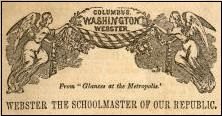 After completing college, he became a schoolteacher. 5 Recognizing the importance of providing an American rather than a British education, Noah began writing distinctly American books 6 that taught children Americanized spellings, readings, and pronunciations as well as American history. 7 Noah was adamant that just as America had worked hard to become an independent Nation, she also needed a uniform language. 8 His profound influence in shaping America’s educational system earned him the title “Schoolmaster to America.” 9
After completing college, he became a schoolteacher. 5 Recognizing the importance of providing an American rather than a British education, Noah began writing distinctly American books 6 that taught children Americanized spellings, readings, and pronunciations as well as American history. 7 Noah was adamant that just as America had worked hard to become an independent Nation, she also needed a uniform language. 8 His profound influence in shaping America’s educational system earned him the title “Schoolmaster to America.” 9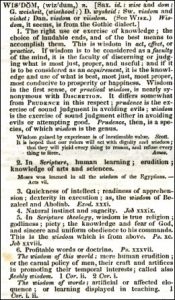
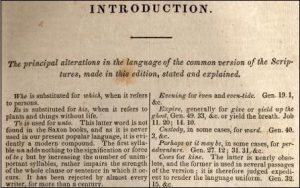 Five years later, taking what he had learned from his extensive work on the dictionary, Noah published an updated version of the King James Bible, replacing outdated ancient words with their more modern meanings. For example, he replaced the King James word “kine” with its modern equivalent, “cow or cattle.” Noah believed strongly in the inerrancy of God’s Word, so wanting to ensure that he had changed none of the doctrinal meanings of the Scriptures with his word changes, in the preface to his Bible he listed all the specific words that he had updated so that people would know and could investigate for themselves exactly what he had and had not changed. This 1833 Bible is considered the first “modern” language American translation.13 While preparing both his Dictionary and the Bible, Noah wrote many letters that reveal his deep love for God and the Scriptures. (We have posted some of those original letters which we own on our WallBuilders website.)
Five years later, taking what he had learned from his extensive work on the dictionary, Noah published an updated version of the King James Bible, replacing outdated ancient words with their more modern meanings. For example, he replaced the King James word “kine” with its modern equivalent, “cow or cattle.” Noah believed strongly in the inerrancy of God’s Word, so wanting to ensure that he had changed none of the doctrinal meanings of the Scriptures with his word changes, in the preface to his Bible he listed all the specific words that he had updated so that people would know and could investigate for themselves exactly what he had and had not changed. This 1833 Bible is considered the first “modern” language American translation.13 While preparing both his Dictionary and the Bible, Noah wrote many letters that reveal his deep love for God and the Scriptures. (We have posted some of those original letters which we own on our WallBuilders website.)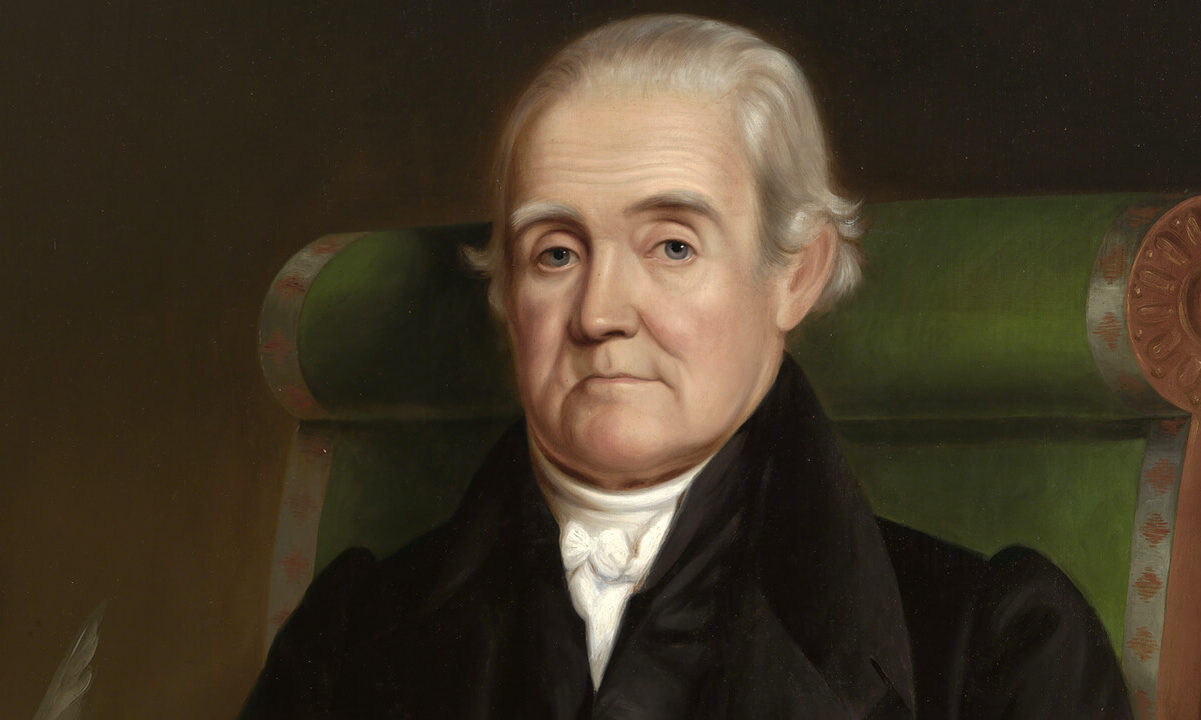
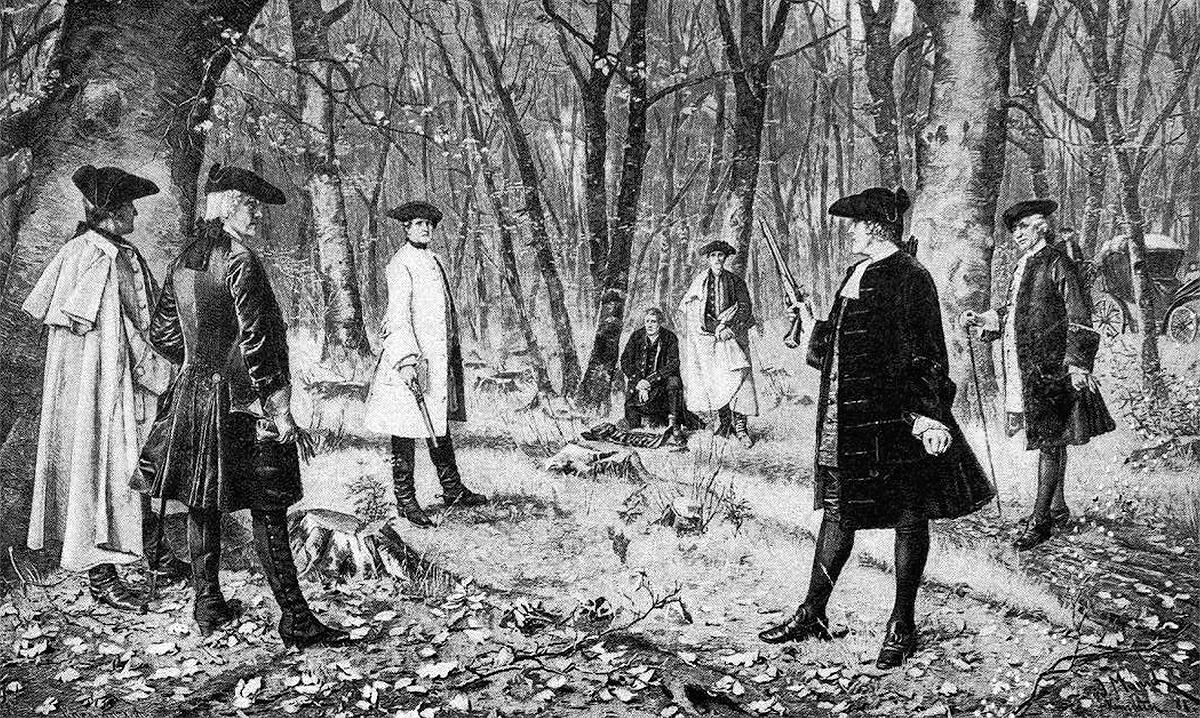
 The right . . . of bearing arms . . . is declared to be inherent in the people. Fisher Ames, A Framer of the Second Amendment in the First Congress
The right . . . of bearing arms . . . is declared to be inherent in the people. Fisher Ames, A Framer of the Second Amendment in the First Congress 
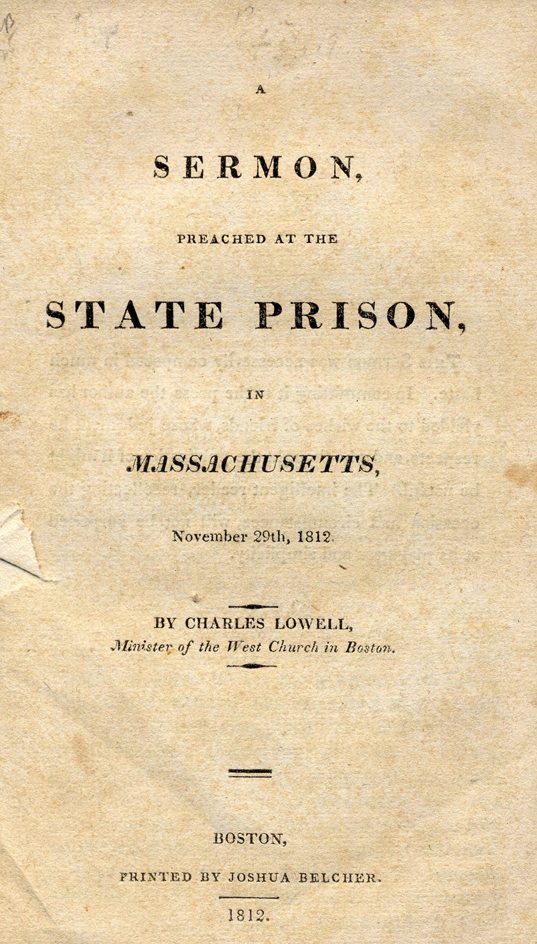

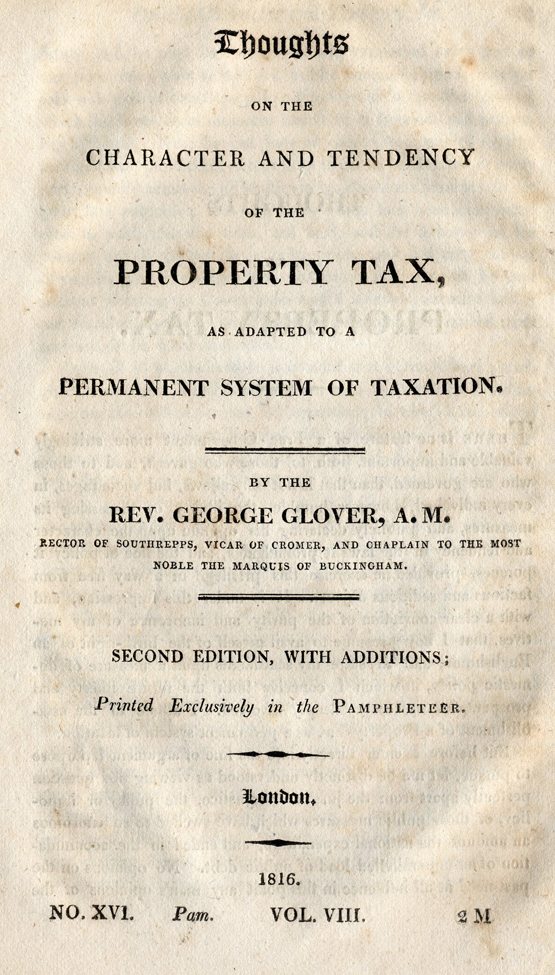
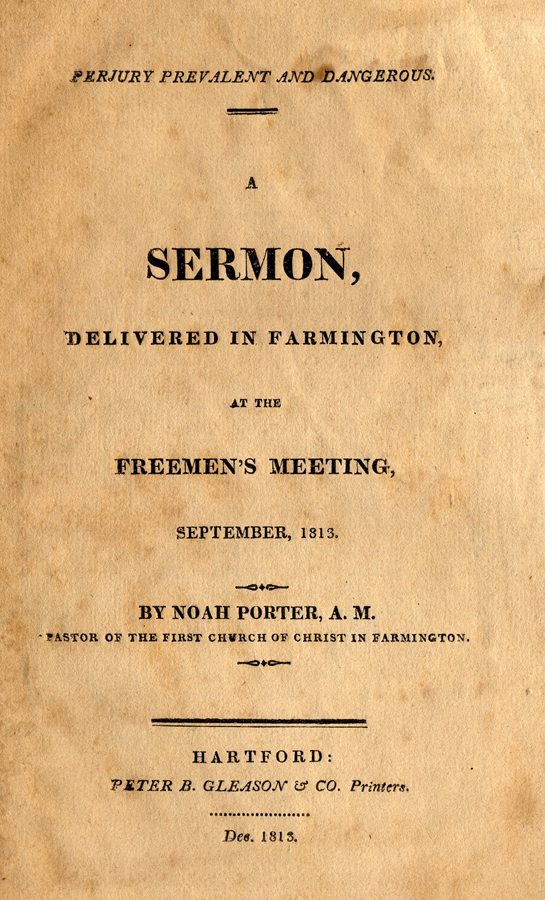
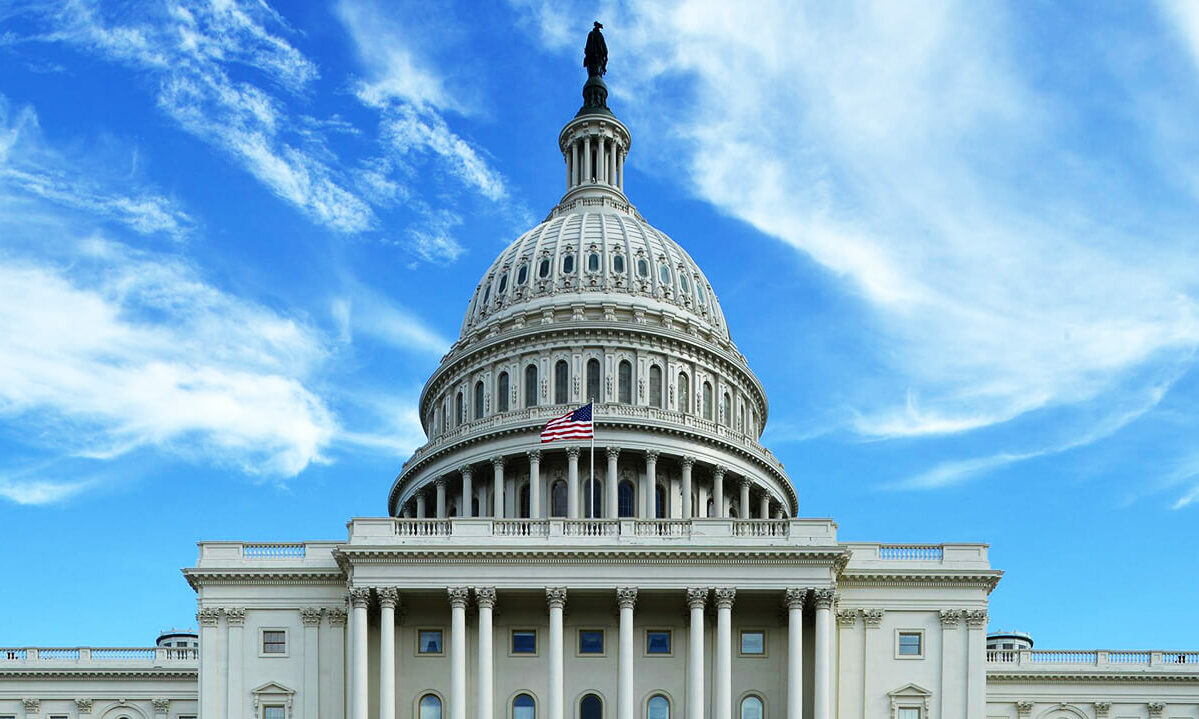

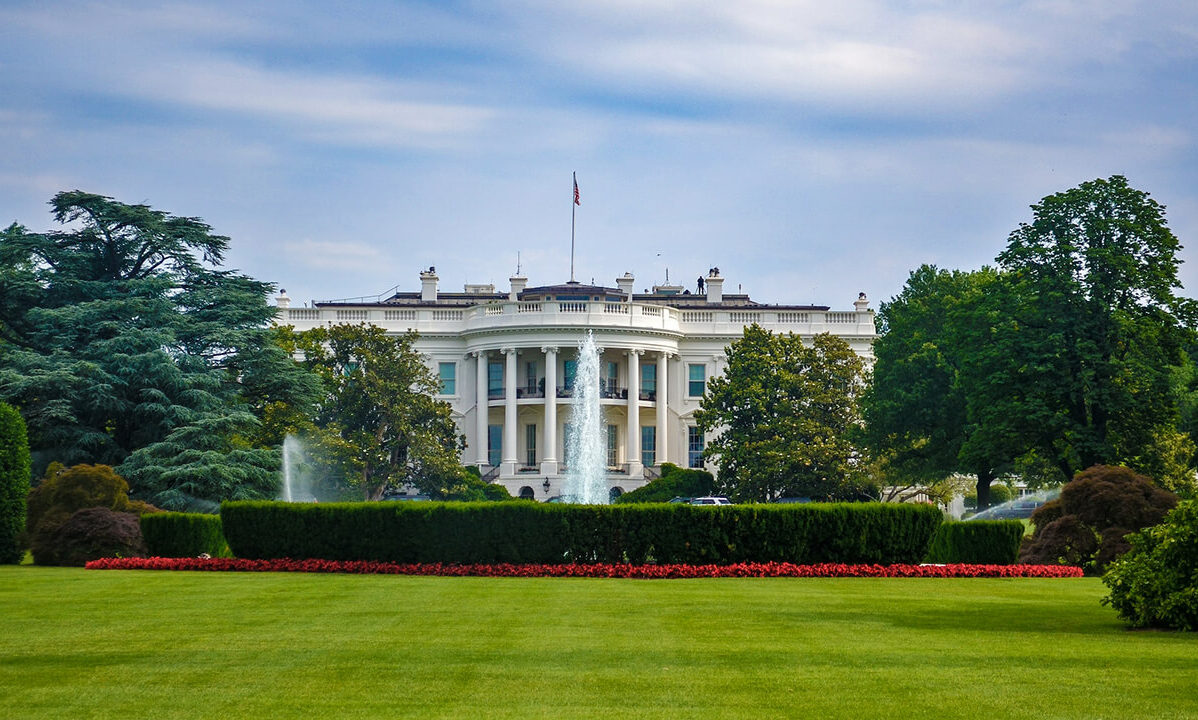
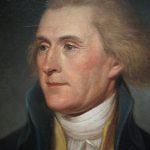
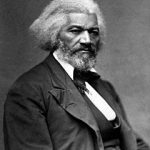 On March 18, 1877, Frederick Douglass became the first African American confirmed by the U. S. Senate to serve in a presidential appointment.
On March 18, 1877, Frederick Douglass became the first African American confirmed by the U. S. Senate to serve in a presidential appointment.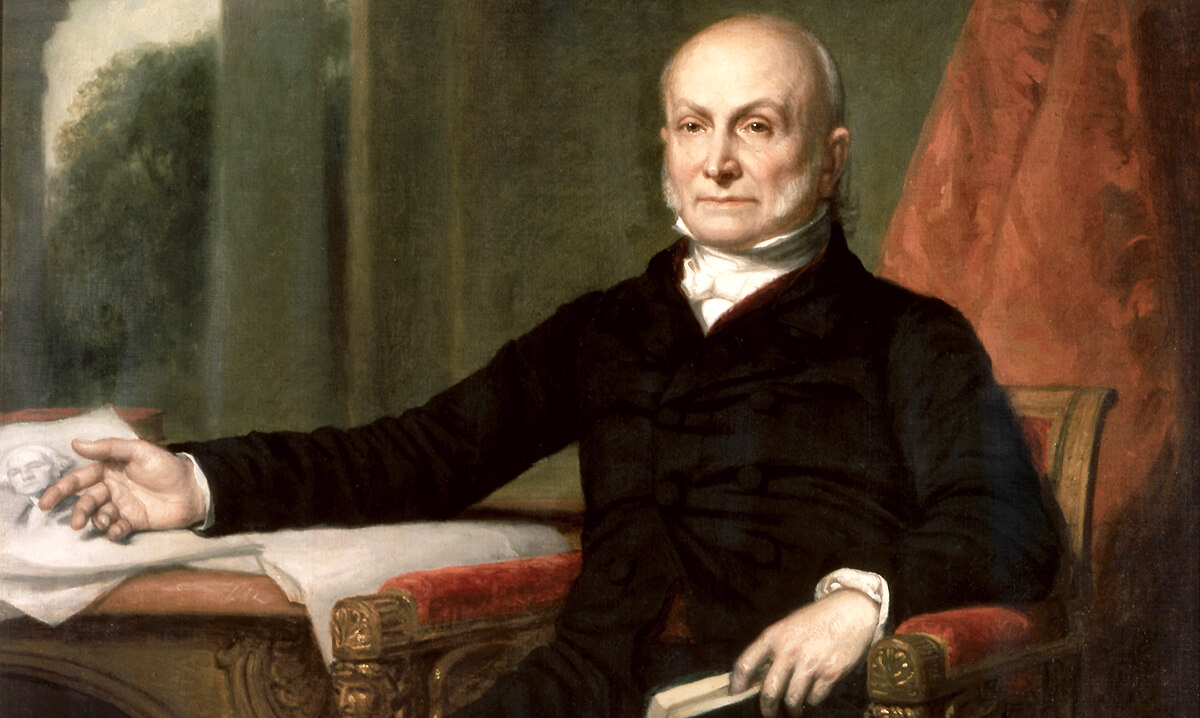
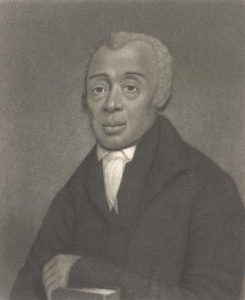 Black History Month is a special time to focus on black history, which interestingly often involves not just Black Americans but also those of other races. As famous Black American minister Richard Allen reminded his brethren during the Founding Era, “Many of the white people have been instruments in the hands of God for our good [and] are now pleading our cause with earnestness and zeal.”
Black History Month is a special time to focus on black history, which interestingly often involves not just Black Americans but also those of other races. As famous Black American minister Richard Allen reminded his brethren during the Founding Era, “Many of the white people have been instruments in the hands of God for our good [and] are now pleading our cause with earnestness and zeal.” 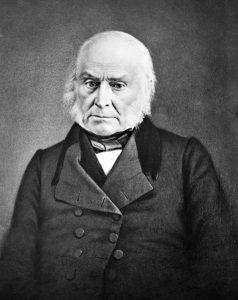 Adams also led the legal defense of the African slaves in the famous Amistad case
Adams also led the legal defense of the African slaves in the famous Amistad case 